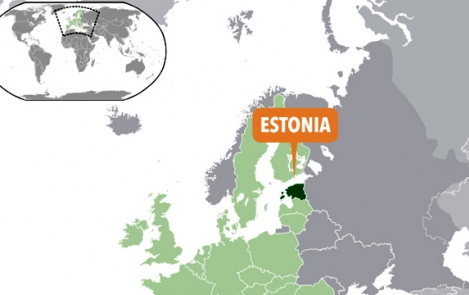-
Reset
+


"Lessons from Estonia on cyberspace censorship", Rappler, 28 September 2012
28.09.2012
By Voltaire Tupaz
MANILA, Philippines - If President Benigno Aquino attended the ongoing United Nations general debate, he could have learned something from his Estonian counterpart: Don't censor cyberspace.
In a speech at the UN, Estonian President Toomas Hendrik Ilves expressed concern that too many countries warn about the dangers of a free Internet from a security perspective.
"The truth is that cybersecurity is needed to prevent oppressive governments and criminals wreaking havoc," Ilves argued, noting that "cybersecurity should not prevent peaceful individuals from speaking their minds or gathering information and exchanging ideas."
Even if it experienced "extensive" cyberattacks, Estonia's response was not to implement more rigid regulation and censorship in cyberspace, but to promote an open, secure and reliable Internet, Ilves said.
Cybercrime law
The Philippines, unlike Estonia, opted to be tough on cyberspace.
It enacted the Cybercrime Prevention Act of 2012, sparking online and offline protests that reached the international level.
The New York-based watchdog Human Rights Watch joined Filipino netizens, journalists, lawyers, legislators, and even hackers in criticizing the new cybercrime law, saying that its provisions on libel and state power to shut down websites will curtail freedom of expression.
Writing for Rappler in a Thought Leaders piece, Sen Teofisto Guingona III, said, "Without a clear definition of the crime of libel and the persons liable, virtually any person can now be charged with a crime."
In a statement, Bayan Muna Rep Teddy Casiño called on Malacañang "to suspend the implementation of the Cybercrime Law until this is carefully scrutinized and amended. As it is, another provision (Section 19 of the Act) moves for the taking down of websites. It gives power to the Department of Justice (DOJ) to restrict or block access to a website without court order."
Estonian e-nnovations
In a recently held conference on information and communication technologies (ICTs), industry leaders in the Philippines also challenged the government to appreciate how ICT improves the living conditions of the people.
The Philippines may also find a good model in Estonia as far as tapping the ICT sector is concerned to improve governance.
In his address, Ilves highlighted how ICT helped push development and promote good governance in his country.
Estonia, a member of the European Union, is reportedly the first country in the world to introduce online voting in parliamentary and municipal elections.
The information revolution has assisted Estonia, a former Soviet country, in rapidly transforming its own economy, Ilves said.
The Estonian leader boasted about how the range of electronic services his government offers, like e-government and e-medical prescriptions, has enhanced transparency and reduced cost of transactions and corruption in his country of more than 1.5 million people.
Over 90% of the country's taxpayers filed annual income tax returns online this year, Ilves reported.
"More importantly, however, they have increased the possibility to exercise fundamental rights and freedoms and improve inclusive and responsible governance," he stressed.
According to him, Estonia is one of the few countries that have "leapt into modernity and transparency" by investing in information technology.
Model of development
Considered a Baltic Tiger, Estonia was declared a high-income economy by the World Bank and has been considered the freest economy in Eastern Europe and the former Soviet Union.
"New information and communication technologies have the potential to trigger the next Industrial Revolution. But governments cannot achieve it all alone," Ilves said, emphasizing the role of the ICT sector.
But he noted that governments should create a secure and fruitful environment for ICT-fueled development to prosper.
"Twenty-one years after restoring our independence, Estonia is an example where a combination of responsible free enterprise, e-governance, international partnerships and eco-friendly policies can put you in the fast lane of development," he said.
The Estonian president is one of the world leaders who have already spoken at the 67th Assembly's General Debate at the UN Headquarters in New York. The debate which carried the theme, "Adjustment or settlement of international disputes or situations by peaceful means," started on September 25 and will end on October 1.
Original article on the Rappler webpage.



